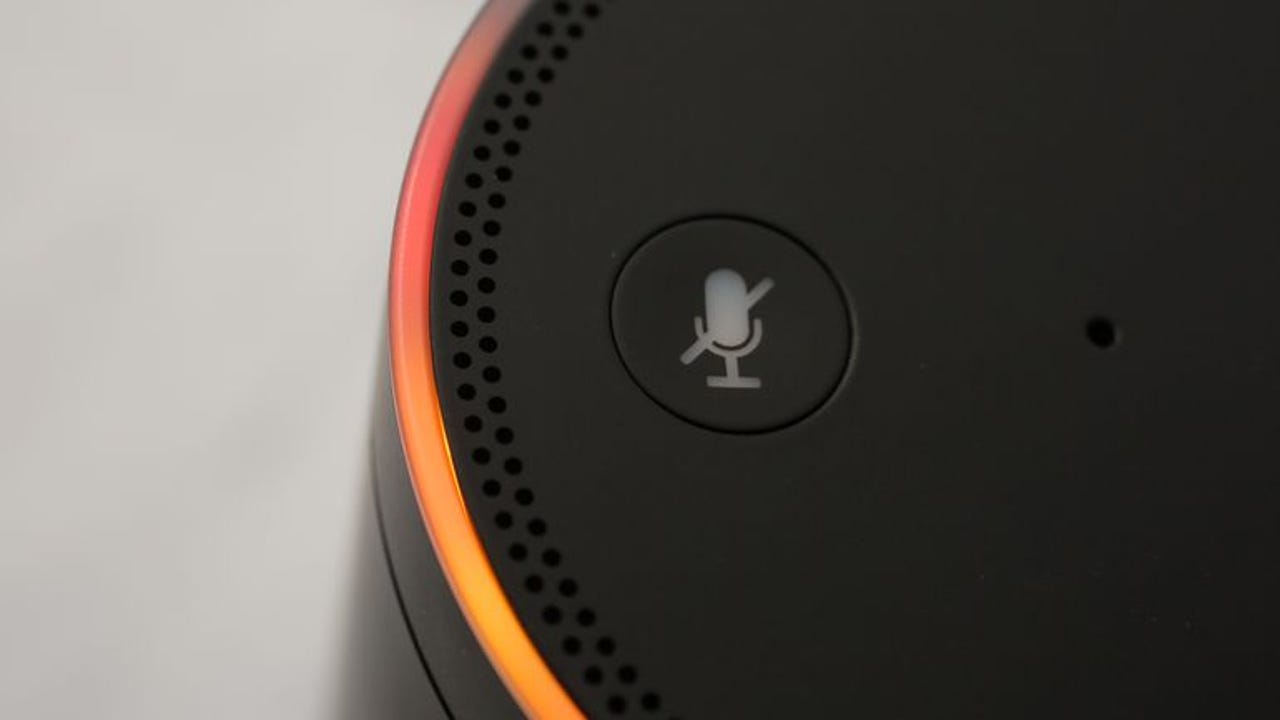Amazon's Alexa: Four reasons she isn't going to take over the world (yet)

Amazon's Echo and the built-in Alexa service: coming soon to a home near you?
Amazon's Alexa service has been a surprise hit; the digital assistant wrapped up in the Amazon Echo smart speaker is rapidly turning itself into the leading smart home hub.
Alexa can be used for anything from playing music, setting timers, and writing shopping lists to controlling smart home systems and domestic appliances, and even starting your car.
There are now over 7,000 Alexa 'skills' -- Amazon's name for voice-controlled services. Amazon has sold five million of the smart speakers already (and likely a whole lot more over the festive period too).
At this month's CES show Alexa was one of the stars of the show, with consumer appliance makers and consumer electronics companies announcing plans to integrate Amazon's voice-controlled assistant into their products. Right now the momentum certainly seems to be building behind Alexa, but that doesn't mean that Amazon's digital assistant is going to take over the world -- at least not just yet.
Here's a few things to consider.
1. Voice control is great, but won't be used everywhere.
CES 2017
Using a voice-controlled digital assistant makes great sense in certain situations. If you have your hands full -- with a steering wheel, or a half-made dinner, perhaps -- then speaking a simple command is vastly better than typing one. And what the recent crop of voice-controlled digital assistants have done is to start filling the gaps left by other forms of input, like the keyboard. But that doesn't mean that speech will replace the keyboard or screen for more complex tasks.
Speech works best with simple commands, not long, complicated, precise, nested requests. That's for two reasons -- firstly, because algorithms still find those complex requests hard to process, and secondly because humans find them hard too compose, which is exactly why we write stuff down.
Similarly, the use of voice-control in business is likely to be niche: it's fine to shout 'Alexa, set a timer' over the noise of the family in the kitchen, but perhaps less so in the office.
2. It's not clear how you make money from Alexa skills.
The smartphone ecosystems exploded into life when independent developers worked out they could make serious money from building apps for Android and iOS. While there are plenty of Alexa skills already, many are trivial or simply connections into existing apps.
It's not clear if voice control in itself is enough to support an ecosystem like that of the smartphone with hundreds of thousands of apps.
Indeed, invoking Alexa apps is itself overly complicated, because users have to remember the specific names and keywords necessary to activate each app. This may limit the number used (I can't keep track of more than half a dozen myself), at least until that invocation process can be streamlined.
3. Privacy concerns may increase.
Amazon is clear about what is recorded by the Alexa service and what is not -- and allows you to review the recordings through the Alexa app, and delete them if you want. But, if you ever play one back, it still gives you a jolt to hear a recording of your own voice -- or of your family members -- that has been sent up into Amazon's cloud servers to be processed.
As voice-controlled devices become more widely used, more issues around privacy will undoubtedly crop up. How vendors deal with these issues will have a big impact on the success of voice-controlled devices.
4. Amazon has the momentum, but for how long?
Amazon has certainly stolen a march on competitors like Google and Apple by finding the right device to embody its Alexa service. Putting Siri or Google Now into a smartphone has never really worked that well: we want to talk on our phones, not talk to them.
In the home there's much less potential for embarrassment when talking to one of these services, as Amazon realized. Google will certainly try to narrow the lead that Amazon has, using its Google Home smart speaker, as will Apple, which has long had designs on the smart home.
Apple's advantage here is likely to be around privacy, just as it is in the smartphone world. In the home, that may be a big deal.
What do you think? Join the debate in the comments below.
More on the Amazon Echo
- Amazon Echo: The four hard problems Amazon had to solve to make it work
- Amazon Echo voice-controlled smart speaker comes to UK and Germany
- Amazon intros cheaper Echo Dot, priced at $49.99
- Amazon Echo review: Alexa is the first digital assistant that is actually helpful
- Apple's Echo rival reportedly has a prototype, complete with cameras
